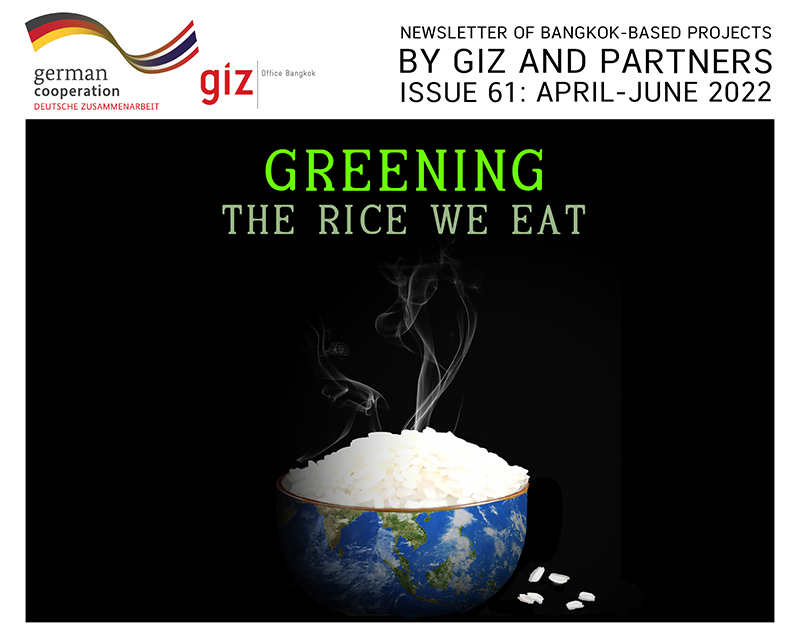 | |
| |
Dear readers,
Here it is, the second issue of 2022!
We are delighted to provide you with updates on our project activities along with insightful articles.
As always, we offer a few highlights from our projects. Under the spotlight in this issue is the "Thai Rice NAMA", a model project for low-emission rice production and sustainable farming in Thailand. Learn more about it here!
There are also other articles from the projects which we would like you to explore. They include a special interview with the fishermen of Nakhon Si Thammarat which reveals their views on marine plastic pollution, and a feature on the Electricity Generating Authority of Thailand (EGAT) joining hands with GIZ to promote green cooling technology to achieve carbon neutrality, from which you will learn more about how the project has supported green cooling for the Refrigeration & Air Conditioning sector. Other articles cover the Energy Policy and Planning Office (EPPO) and GIZ signing an MoU to cooperate on working towards Thailand’s energy transition and an insight into how Thai palm oil production can be enhanced to meet global sustainability demands. Don’t miss them!
For more regular updates, please visit us at: Website and Facebook, as well as our Twitter and LinkedIn.
And don’t forget we offer various training courses through AIZ Bangkok to help you enhance your skills and capacity in your work. You can find them here.
Best regards,
Your newsletter team
|
| |
|
|
|
|
|
|
| |
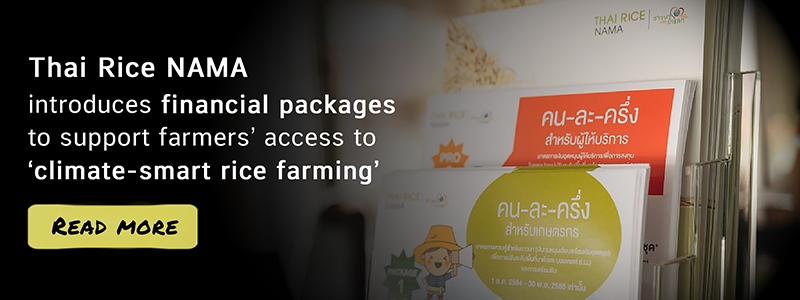 |
| |
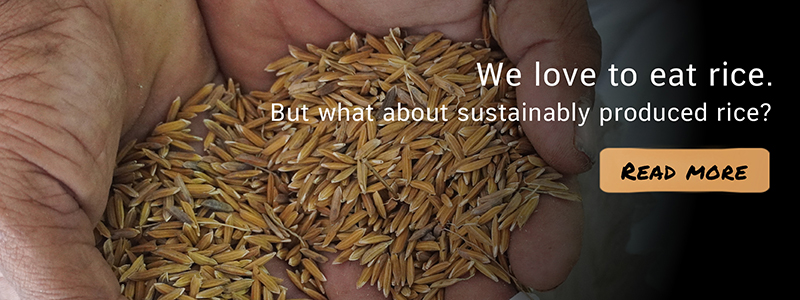 |
| |
| |
 |
| |
| Thailand marks key milestone in streamlining agricultural exports using ePhyto |
| |
| ● |
The Global Alliance for Trade Facilitation is supporting the Department of Agriculture (DOA)’s integration into the International Plant Protection Convention (IPPC) ePhyto Hub. |
| ● |
ePhyto is implemented through the National Single Window (NSW), an e-license system to support import and export information linkage between the public and private sectors, leading to making Thai exports more secure and cost-effective. |
| ● |
DOA launched the ePhyto system in February, starting with a pilot service for 22 commodities exported to China. The system has been operated in all countries from July onwards. |
|
| |
|
|
|
|
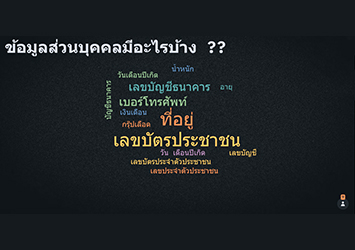 |
| |
Personal Data Protection in the Agriculture Sector
|
| |
| ● |
GIZ Thailand held the Personal Data Protection workshop for Thai rice researchers and officials of the Rice Department. |
| ● |
Highlights of this workshop included the interpretation of the Personal Data Protection Act 2562 B.E. (2019) (PDPA), the data protection issues in interacting work with farmers and data workers’ rights and duties. |
| ● |
This workshop aimed to enable proper and more concise data operation practices in the future, including farmer data collection, data management for agricultural research and the development of a farmer database.
|
|
| |
|
|
|
|
|
|
| |
|
| |
| |
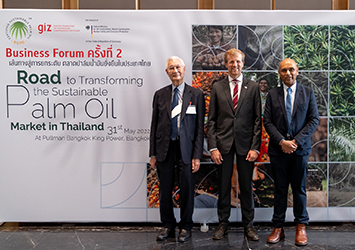 |
| |
| Enhancing Thai palm oil production to meet global sustainability demands |
| |
| ● |
In 2021, 400 smallholders under the Sustainable and Climate-Friendly Palm Oil Production and Procurement (SCPOPP) project achieved the Roundtable on Sustainable Palm Oil (RSPO) certification and connected to the global market. |
| ● |
Thai policymakers and business actors joined the “Second Business Forum: Road to Transforming the Sustainable Palm Oil Market in Thailand” to discuss how Thailand can meet the global demand for sustainable edible oils. |
|
| |
|
|
|
|
 |
| |
Scaling up regenerative agriculture
|
| |
| ● |
Governmental and private agriculturists and agronomists organise a series of training sessions on regenerative agriculture for coconut farmers across four provinces in Thailand. |
| ● |
The master training is regarded as the project’s key step to transforming conventional practices towards regenerative organic practices aimed at reducing their impact on climate change and strengthening the livelihoods of farmers and local communities.
|
|
| |
|
|
|
|
|
|
| |
|
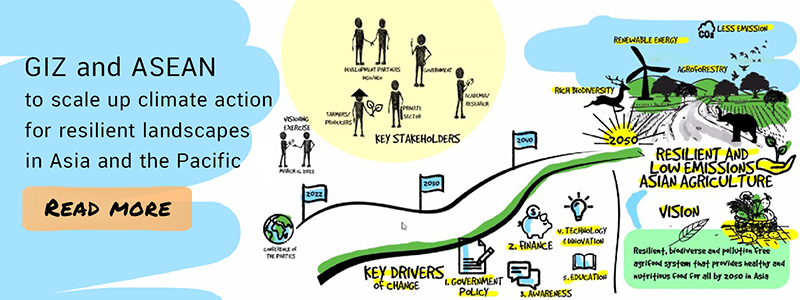 |
| |
| |
 |
| |
| EGAT joins hands with GIZ to promote green cooling technology to achieve carbon neutrality |
| |
| ● |
The Electricity Generating Authority of Thailand (EGAT) and GIZ Thailand signed a Memorandum of Understanding (MoU) on “Cooperation on Promotion and Enhancement of Green Cooling”. |
| ● |
Under the agreement, sustainable transformation for climate-friendly and energy-efficient cooling technologies using natural refrigerants will be promoted and enhanced. |
| ● |
The implementation focuses on driving the Refrigeration and Air Conditioning (RAC) sector in the country to achieve carbon neutrality and net zero-emission goals. |
|
| |
|
|
|
|
 |
| |
| EPPO and GIZ sign MoU on cooperation to work on Thailand’s energy transition |
| |
| ● |
The Energy Policy and Planning Office (EPPO) and GIZ Thailand have signed a Memorandum of Understanding (MoU) under which both parties commit to cooperate in working on Thailand’s energy transition. |
| ● |
The implementation will focus on supporting EPPO in promoting and collaborating on Thailand’s energy transition to achieve the country’s carbon neutrality within 2050. |
| ● |
Currently, EPPO is responsible for developing and recommending national energy policies and plans, including energy-related measures and energy conservation. |
|
| |
|
|
|
|
|
|
|
| |
| |
| |
| |
 |
| |
| ASEAN endorses protocols in responding to public health emergencies |
| |
| ● |
At the 15th ASEAN Health Ministers Meeting, the two ASEAN protocols relating to public health emergencies, preparedness, and response were endorsed. |
| ● |
The development of these two protocols is supported by the “Strengthening Regional Initiatives in ASEAN on COVID-19 Response and other Public Health Emergencies” project. |
| ● |
These are the ASEAN Protocol for Cross-Border Contact Tracing and Rapid Outbreak Investigation, and the ASEAN Health Protocol for Pandemic Preventive Measures in Public Places including its operationalisation guidelines. |
|
| |
|
|
|
|
 |
| |
How can ‘Water Funds’ enhance climate resilience for the Thai water sector?
|
| |
| ● |
A water fund is a financial instrument that can promote the conservation and maintenance of ecosystem services. |
| ● |
The development of a water fund can encourage the mainstreaming of climate change adaptation into policies, plans and strategies. |
| ● |
Currently, Thailand’s regulatory water agency is assessing options to develop a Water Fund in order to assess the appropriate water fee collection and allocation process, to support good governance and transparency in water management.
|
|
| |
|
|
|
|
|
|
| |
|
| |
| |
 |
| |
| Training Facilitators to promote climate-sensitive river basin management in Thailand |
| |
| ● |
A “Training of Facilitators” supported and promoted sustainability and the continuity of capacity building in climate risk and adaptation to river basin management in Thailand. |
| ● |
Participants learned about climate vulnerability risk assessments, Ecosystem-based Adaptation and river basin management. |
| ● |
In the training programme, the participants also acquired essential facilitator skills to run and facilitate climate-resilient water management training in the future.
|
|
| |
|
|
|
|
 |
| |
| Options for restaurants and cafes to reduce single-use plastics in food delivery and takeaway |
| |
| ● |
The Pollution Control Department (PCD) and the ‘Rethinking Plastics – Circular Economy Solutions to Marine Litter’ project hosted a workshop to discuss options and solutions to reduce single-use plastics in food delivery and takeaway. |
| ● |
These will be included in a set of guideline that is jointly being developed by the project and PCD and shall serve as an orientation for restaurants and cafes on how to reduce the use of single-use plastics in their operations. |
| ● |
The guideline is now in finalisation and is planned to be published by August 2022. |
|
| |
|
|
|
|
|
|
| |
|
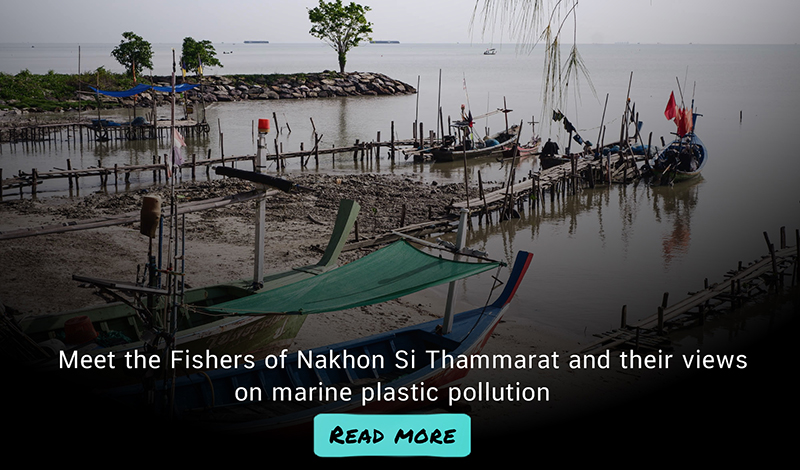 |
| |
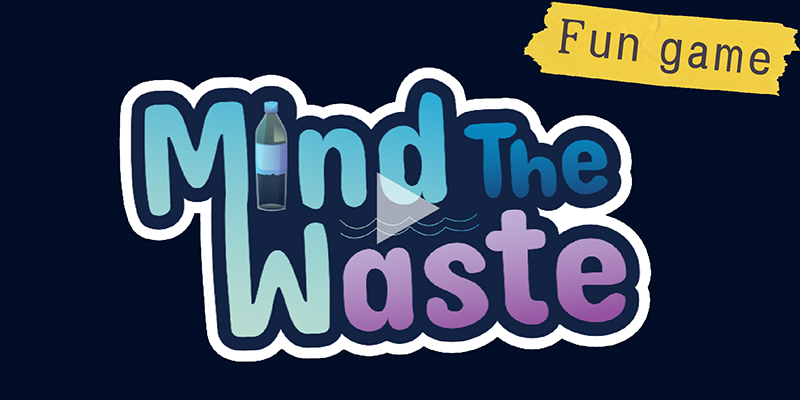 |
| |
| |
 |
| |
Upstream solutions embedded in Thailand’s Plastic Waste Management Action Plan Phase II
|
| |
| ● |
The Pollution Control Department has prepared the Action Plan phase II (2022 – 2027) which focuses on an upstream Circular Economy to promote prevention and preparation for reuse measures. |
| ● |
The downstream approach (recycling, recovery and disposal measures) still remains in the Action Plan phase II, also pushing for better management of “post-consumption plastic management”. |
| ● |
The Collaborative Action for Single-Use Plastic Prevention in Southeast Asia (CAP SEA) project recommends setting a clear definition of a Circular Economy in the high-level policy objectives of Thailand. Measures and activities should be designed according to a Circular Economy Waste Hierarchy. |
|
| |
|
|
|
|
 |
| |
| BMUV-funded project “Scaling SCP” commissioned to promote ambitious sustainable consumption and production patterns |
| |
| ● |
The “Scaling Sustainable Consumption and Production: Ecolabelling and Green Public Procurement (GPP) for a Low-Carbon Pathway in Southeast Asia” (Scaling SCP) is a regional project with the objective of reducing GHG emissions by scaling sustainable product policies. |
| ● |
In Thailand, the focus is on developing the GPP Monitoring and Evaluation (M&E) System and upgrading the Thai Green Label. |
| ● |
The project will pilot the roll-out of GPP with the Electricity Generating Authority of Thailand (EGAT), particularly by pioneering Green Cooling Air Conditioner procurement.
|
|
| |
|
|
|
|
|
|
| |
|
| |
|
|
|
 |
|
|
|